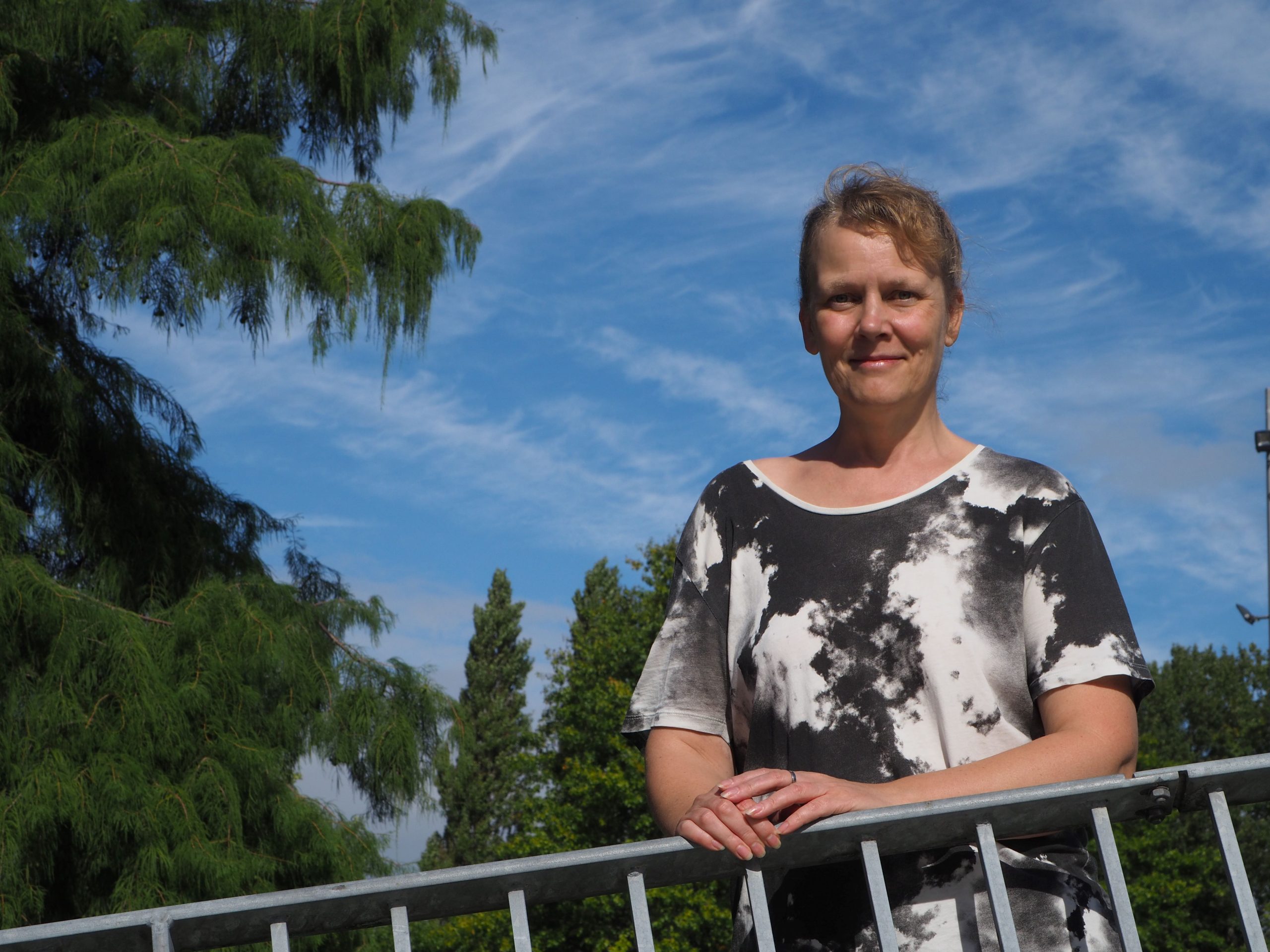The Works Council elections will be held on 3 and 4 October. For who and what parties can you vote? This time: Winke Kloosterman of the Academisch Belang (academic interest).
Winke Kloosterman: “You hear a lot of experiences from the shop floor in the Works Council and you can use them to raise issues.” (Photo: Jos Wassink)
The Works Council elections will be held on 3 and 4 October. For who and what parties can you vote? This time: Winke Kloosterman of the Academisch Belang (academic interest) party.
Winke Kloosterman represents the Academisch Belang party in the Works Council (OR). She fulfils the role of member of the Data Protection & Information Technology Committee.
What was the reason that you joined the Works Council?
“I work at Education & Student Affairs and I saw how we deal with students’ data. It was not going well as you may not share sensitive data on students, such as a list of scores, on Teams, but this was being done. I reported this to my supervisor, but it did not lead anywhere. So I thought I should join the Works Council so that I can shake the tree harder. You hear a lot of experiences from the shop floor in the Works Council and you can use them to raise issues.”
You are one of the members of the data protection & information technology committee. Is that your subject?
“Actually, academic values are my subject. Then it’s about honesty, responsibility, independence, transparency and diligence.”
Why is IT an important issue for the OR?
“Because of the effect of IT on independence. If a university enters a contract with Microsoft, it is not independent anymore. In the processing agreement, Microsoft says that you may not share any sensitive or particular personal data. I wanted there to be more awareness about IT. On top of that, there was no communication from either side. The IT Department did not share information with the OR, and the OR did not ask for any. This is now improved.”
Do you see it as your responsibility to share your knowledge about IT?
“Yes, and not only in the OR, but also when I am with a colleague in a Teams meeting. It is not good that I am always the one who has to explain that sharing sensitive information is not permitted. I do not understand why it is not made clear what you may and may not do in Teams.”
You are known in the OR as someone who looks at details. Does this make you the critical voice of the OR?
“Yes, but I’m not the only one. It is important to have different kinds of people in a Works Council such as people who concentrate on details and people who are skilled in meetings or holding discussions. I look critically at the Result and Development Cycle (R&D), while other people in the party and the Works Council talk more about inclusiveness. Looking critically at things is less needed in that area.”
And why are you standing for a second term?
“I have the impression that there is finally some movement in the IT issues raised in the OR. We set up a committee for this three years ago, so I really cannot stop now.”
How strong is the OR in relation to the Executive Board given a turnout of 30%?
“This is not that bad a percentage country-wide. And the people that do vote, really vote for something. Even the people who do not vote know to approach the OR if something goes wrong in their department. We are there for everyone.”
- This is the second article in a series in which Delta discusses the work of the Works Council with the Chairs of the four parties standing for election.
- Delta also spoke to Ronald Kuil, Maaike Swarte and Rebekka van der Grift.
- Do you want to know more about the work of the OR? The OR has briefly explained its work in the video below.



Comments are closed.